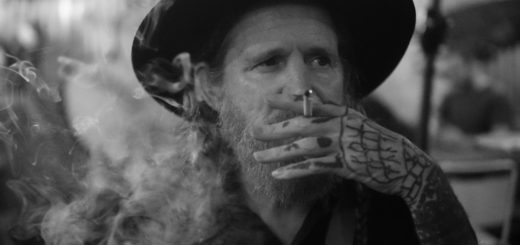Fragility and Minefields
Never post anything to the internet when you are in pain. In fact, it is probably a good idea to never post anything except cat photos.
But I am getting ahead of myself. I write this not about the other people who figure in it, but about myself. I have failed. Not in material things, I have used my cis-white male privilege to enter the middle class, not rich but with a stable job, health insurance, pension. The failures I write about are moral failures, where I have betrayed what I saw as the truth for fear of conflict, to get along, to avoid upsetting others.
Growing up in England in the 60s and 70s, I believed that women should not be banned from any profession and should get equal work for equal pay. I also believed that most women would naturally choose nurturing roles, as housewives, nurses, or teachers.
So when I fell in love with a feminist who didn’t believe in such essentialism, I asked her what I should read. She gave me Susan Brownmiller’s Against Our Will: Men, Women, and Rape.
Brownmiller’s arguments were eye opening to me. I had so little experience with the opposite sex that I had no idea how much they lived in fear of violence and rape by men. I was no stranger to violence, having had my nose broken on a deserted street as a teenager. But to me staying safe was a matter of staying away from kids playing with knives, after dark staying in groups, staying away from my stepfather if he was in a foul mood. I did not know the constant fear of sexual assault, from acquaintances as well as strangers.
But then I read that I was keeping all women in fear by threat of rape. In Brownmiller’s most powerful passage: “[Rape] is nothing more or less than a conscious process of intimidation by which all men keep all women in a state of fear.” And I read it literally—I was a man, and as a careful and well-written author she expressly targeted all men.
It was too hard for me to read. I have never threatened anyone with rape, and no one need be in any fear of me. Feeling betrayed by Brownmiller, and thirty years before the concept of privileged fragility, I put the book down.
I protested to my friend. Did she think that I was a rapist? She insisted that Brownmiller was right. Not wishing to cause a fight with the love of my life, I dropped the subject, but with mental fingers crossed behind my back. I could never trust a feminist author, if one so prominent could make such an outrageous statement.
In the overly specialized British educational system, I had no training in critical thinking. I did not have the background to think that if I did not agree with one statement by one author, I should examine the context and motivation for that statement. I was used to the inevitable certainty of mathematics, Any fault in the edifice made the whole thing crash down.
So from the start I revolted against the mantras of the American left. I felt much more in tune with the British Janet Radcliffe Richards’ analysis in the Sceptical Feminist, in which women’s rights derive from universal rights. For me, “equal pay for equal work” meant equal pay for equal work for everyone, not just for some protected group. I regard the debate being played out in American courts as to whether the LGBTQ community is protected as a great failure of the Civil Rights Act. No one should suffer discrimination, and spelling out a list of protected groups means that only those groups are protected. The worth and identity of the LGBTQ community is in the hands of politically appointed straight white men. Everyone should have equal rights, even me—I should not be denied a pay raise because I love Lady Gaga. In Europe, all discrimination is forbidden, and sex and race are enumerated on a list that is explicitly not exclusive.
After the 2016 election, I joined an anti-Trump activist group. We shared common purpose, but clearly not common values. In one strategy meeting, the near universal consensus in an anonymous ballot was that the primary issue was the patriarchy. Mine was the lone dissent, that the primary issue of the day was the treason of Donald Trump, who had been on the take from the Russians since the 1990s, and was now Putin’s man in the White House. But we shared common practical objectives in non-violent opposition to the Trump regime, so I kept planning and working with the others.
At one of our weekly meetings, an abortion rights campaigner came to speak. Apparently every month a church near the Planned Parenthood clinic on Bleeker Street had a service and then came en masse to protest the clinic. Her group had successfully blocked the congregation from leaving their church that month and wanted our assistance for next month.
I could not believe my ears. This was the use of force to achieve political ends, anathema to me. I asked twice, how was the congregation prevented from leaving the church? “We prevented them” was the only answer. In the absence of any clearer explanation, I understood this to mean that they physically blocked the exits to the church.
To my great disappointment, the group voted to participate in this action. As I had before, I held my tongue, more out of moral cowardice than out of any more laudable motive of group cohesion or respecting consensus.
A couple of days later someone brought to a committee their protest about this decision. We decided unanimously that we had no right to question decisions made by vote in the group as a whole. But I found the moral spine to raise my objection on Facebook, when the topic arose again there.
Only to be roundly condemned. An activist who I admire greatly attacked me repeatedly, eventually saying that my words were the barking of a cis-white male who had no right to a voice in a feminist action.
I was profoundly embarrassed. Eventually I put an apology on Facebook, and deleted my comments. In fact someone, I assume a group moderator, deleted the entire debate.
As it turned out, my fears were averted. Whether because of their monitoring of our Facebook page, or because of a complaint from the church, the NYPD turned up the next month. On the video, the anti-choice and pro-choice demonstrators were kept separate by a single cop. I was secretly glad that non-violence had won the day.
About a year later, while recovering from surgery, I saw a flame war in progress on the Facebook page of a Black woman whom I had only just started following. In an off topic conversation, two people of color were each accusing the other of racism.
I had never posted before to that page. I felt that as a white person I would be invading the space of the primarily Black community that frequented it. But I felt that a flame war was a flame war, and I could attempt to douse it with some well chosen words, educating the Hispanic woman about the white fragility of which she was being accused, and suggesting to the African-American woman that she could also help educate rather than attack the other party.
Only to be attacked for being a white supremacist telling a Black woman what to do. I was not entitled to suppress Black voices.
Upset that my attempt at calming the waters had in fact inflamed them, and in fear that being enveloped in a flame war on her page would affect my relationship with the page’s owner, I deleted both posts.
Only to be accused of “dirty deleting”, and have screenshots of my offending posts reposted.
I had unknowingly become involved in a community that would not respect my intentions in deleting a post, and took screenshots in advance in order to pursue a grievance against me. I had been right in the first place not to touch this space. My presence in a space that was dominated by Black women was unwelcome and unwise. And I certainly support minority groups’ right to have safe spaces. I wouldn’t want a neo-Nazi in a synagogue.
I wrote a very British apology, in the hopes that despite having acquired a hostile adversary, perhaps these attacks would cease. Or at least that my friend would not think worse of me.
I have no right or intent to censor a Black woman, as I was accused of. But I do think that accusing a Hispanic woman of color of “white fragility” and racism, without explanation, is tactically unsound.
At work I am continually reminded of the reality of racism. There is a clear caste system, largely I think a result of the impact of the racist and classist educational system. African-Americans are of course at the bottom of the heap, above only the LGBT community which shelters in the closet. African-Americans have much to be rightfully angry about.
So I scanned the home page of my attacker, to try to understand better where she was coming from. Defusing her hostility might be implausible, but I could at least look into my own white male privilege and fragility. I generally only do this for friend requests from strangers, to make sure I am not inviting in the trolls, but I thought this could be a genuinely educational experience for me.
Only to read what I interpreted as a boastful account of her aggressively targeting a white man with physical harassment on a crowded bus.
I blocked her on Facebook. I did not have the stomach for a flame war, which I knew I had no chance of “winning”. I was sure that no one who would read it would see it as anything but an attack by a white man on a Black woman, and no hearts and minds would be won. Better to pick one’s battles.
I am a non-violent coward.

